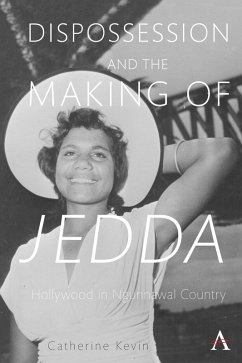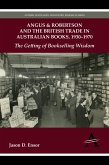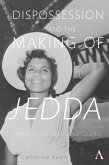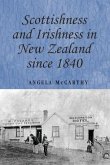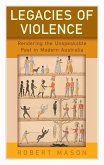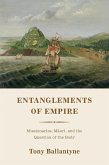In 1955 'Jedda' was released in Australian cinemas and the international film world, starring Indigenous actors Rosalie Kunoth and Robert Tudawali. That year Eric Bell watched the film in the Liberty Cinema in Yass. Twelve years later he was dismayed to read a newly erected plaque in the main street of the Yass Valley village of Bowning. It plainly stated that the Ngunnawal people, on whose country Bowning stood, had been wiped out by an epidemic of influenza. The local Shire Council was responsible for the plaque; they also employed Bell's father. The Bells were Ngunnawal people.
The central paradox of 'Dispossession and the Making of Jedda (1955)' is the enthusiasm of a pastoral community, made wealthy by the occupation of Ngunnawal land, for a film that addressed directly the continuing legacy of settler-colonialism, a legacy that was playing out in their own relationships with the local Ngunnawal people at the time of their investment in the film. While the local council and state government agencies collaborated to minimize the visibility of Indigenous peoples, and the memory of the colonial violence at the heart of European prosperity, a number of wealthy and high-profile members of this pastoral community actively sought involvement in a film that would bring into focus the aftermath of colonial violence, the visibility of its survivors and the tensions inherent in policies of assimilation and segregation that had characterized the treatment of Ngunnawal people in their lifetimes.
Based on oral histories, documentary evidence, images and film, 'Dispossession and the Making of Jedda (1955)' explores the themes of colonial nostalgia, national memory and family history. Charles Chauvel's 'Jedda' (1955), a shared artefact of mid-twentieth-century settler-colonialism, is its fulcrum. The book newly locates the story of the genesis of 'Jedda' and, in turn, 'Jedda' becomes a cultural context and point of reference for the history of race relations it tells.
The central paradox of 'Dispossession and the Making of Jedda (1955)' is the enthusiasm of a pastoral community, made wealthy by the occupation of Ngunnawal land, for a film that addressed directly the continuing legacy of settler-colonialism, a legacy that was playing out in their own relationships with the local Ngunnawal people at the time of their investment in the film. While the local council and state government agencies collaborated to minimize the visibility of Indigenous peoples, and the memory of the colonial violence at the heart of European prosperity, a number of wealthy and high-profile members of this pastoral community actively sought involvement in a film that would bring into focus the aftermath of colonial violence, the visibility of its survivors and the tensions inherent in policies of assimilation and segregation that had characterized the treatment of Ngunnawal people in their lifetimes.
Based on oral histories, documentary evidence, images and film, 'Dispossession and the Making of Jedda (1955)' explores the themes of colonial nostalgia, national memory and family history. Charles Chauvel's 'Jedda' (1955), a shared artefact of mid-twentieth-century settler-colonialism, is its fulcrum. The book newly locates the story of the genesis of 'Jedda' and, in turn, 'Jedda' becomes a cultural context and point of reference for the history of race relations it tells.
Dieser Download kann aus rechtlichen Gründen nur mit Rechnungsadresse in A, D ausgeliefert werden.

